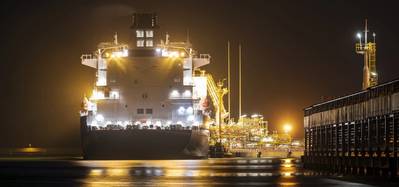IEA: U.S., China to the LNG Lead by 2024
The United States and China will become the world's biggest liquefied natural gas (LNG) exporters and importers, respectively, in five years, according to projections by the International Energy Agency (IEA).
U.S. LNG exports are expected to rocket to over 100 billion cubic meters (bcm) in 2024, dislodging current market leaders Australia and Qatar, Jean-Baptiste Dubreuil, senior natural gas analyst at IEA, said on Tuesday.
He was speaking at a presentation sponsored by Columbia University's School of International and Public Affairs Center on Global Energy Policy in New York.
China's LNG imports, meanwhile, are expected to surge to over 100 bcm in 2024, topping those of current world leader Japan.
Japan's LNG imports have mostly declined since peaking in 2014 as utilities restart some nuclear plants shut for mandatory safety inspections and testing after an earthquake and tsunami damaged the Fukushima nuclear plant in 2011.
IEA said it expects world LNG demand to grow about 4% a year through 2024. To meet that demand, developers made final investment decisions in 2018 to add about 29 bcm of new export capacity and have doubled that to 58 bcm so far in 2019, Dubreuil said.
In addition, some developers said they could make final investment decisions later this year that would add over 120 bcm of capacity, IEA said, including about 30 bcm in the United States and 43 bcm in Qatar.
"We need something, but we're not sure we need anything near that much," Dubreuil said, noting "We think that without further investment just assuming those projects that have already taken (final investment decisions) to date ... things will start to get tight around 2024."
World LNG demand reached a record 432 bcm in 2018 after soaring about 10% a year over the past few years due primarily to fast growth in China.
IEA said China's demand for natural gas, which soared 18% in 2018, is driven by environmental policies switching most industrial and residential consumers from coal to gas to reduce air pollution.
IEA said it expects the increase in gas consumption in China to slow to an annual rate of 8% through 2024 due to slower economic growth.
The United States, which is already the world's biggest gas producer, will see production grow to over one trillion bcm in 2024, boosting its share of global output to about 23%, according to IEA projections.
(Reuters reporting by Scott DiSavino; Editing by Steve Orlofsky)











